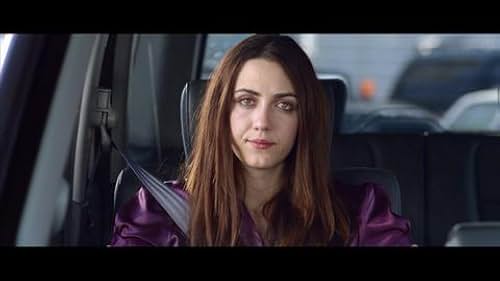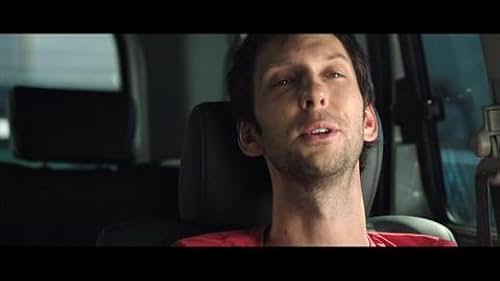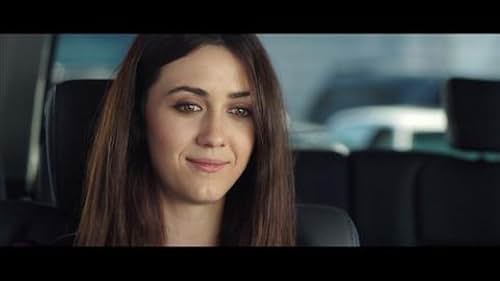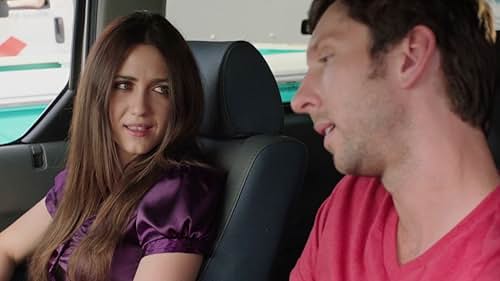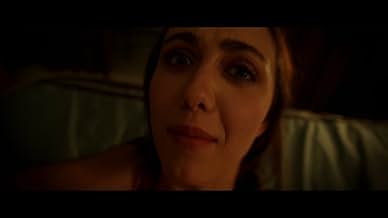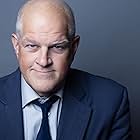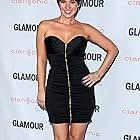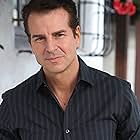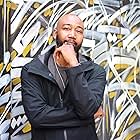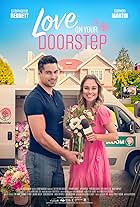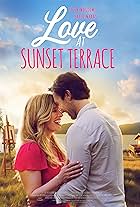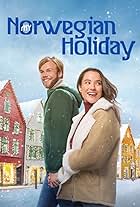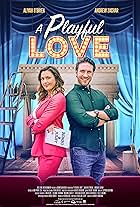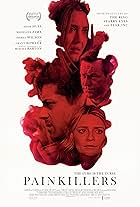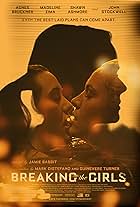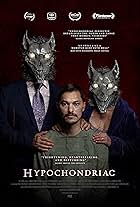#Stuck
- 2014
- 1h 22min
VALUTAZIONE IMDb
5,6/10
1288
LA TUA VALUTAZIONE
Aggiungi una trama nella tua linguaStuck in a traffic jam after a one night stand a guy and girl recount the night before through flashbacks.Stuck in a traffic jam after a one night stand a guy and girl recount the night before through flashbacks.Stuck in a traffic jam after a one night stand a guy and girl recount the night before through flashbacks.
Trama
Lo sapevi?
- QuizThe opening of this movie is similar to 2016's "Love and Hostages." In both, a single eye is shown opening, and then there is a cut to a scene with a couple in bed. In this movie, it is the woman's eye that opens, and she is the one that tries to sneak out. It is the opposite in "Love and Hostages," where the opening eye is the man's and he is the one who tries to sneak out.
- Colonne sonoreGimme Some
Written by Itai Disraeli, Lili Haydn, and Vivek Maddala
Produced by Itai Disraeli, Lili Haydn, and Vivek Maddala
Performed by Itai Disraeli, Lili Haydn, and Vivek Maddala
Recensione in evidenza
The characters in #Stuck are caught in a record-breaking traffic jam; a traffic jam big enough to bring Michael Douglas's D-Fens past his breaking point and into immediate suicidal tendencies and stagnant enough to make the bourgeois French in Jean-Luc Godard's "Week End" mow right through the long array of cars before them. One immediately wonders upon arriving to a halt in their vehicle behind numerous other cars (a) what is holding everybody up and (b) will they ever be able to exit this long road and arrive at their destination? Traffic jams are also inherently anomalous in the regard that while one complains about being stuck in traffic, they are also part of the very issue preventing the person behind them from advancing another car length, effectively shortening the population of the road by one.
I feel like I'm beginning early research on the opening to a paper for my college class entitled "Existentialism" with that kind of introduction, but my mind wandered quite frequently in such a way while watching #Stuck (which, I presume, should be read as "hashtag stuck"), a film that has a narrative that meanders and drifts in a similar way. It concerns the likes of Guy and Holly (Joel David Moore and Madeline Zima, the only two real characters of the whole film), whom we first see sleeping next to one another following a one night stand. Holly wakes up to realize she left her car at the bar the two were at the night before and must endure an awkward ride home with Guy, who she was planning to simply abandon while he was still sleeping. "Why couldn't you have left early like any decent one night stand," Guy tells her when they are driving home.
Guy and Holly wind up getting stuck in a traffic jam so large that adjectives fail to describe its immensity. The main arteries of Los Angeles are clogged with vehicles large and small, on a Sunday afternoon, and nobody is moving. What the start of that jam looks like is only known by a select few. With that, we have a film about two people whose interactions were about to conclude with sex and an overnight snuggle, forcibly being stuck together in a small space for an undisclosed amount of time. The two do nothing but make passive-aggressive conversation with each other, with Holly pervasively texting a friend unknown to Guy, and saying how she hopes somebody is dead at the beginning of the traffic jam to justify the mass amount of congestion. Guy responds by calling her amoral and, alas, we have the makings of a conversational film.
Writer/director Stuart Acher ping-pongs back and forth frequently to show the one night stand between Guy and Holly in reverse, showing events play backwards in sequence from time-to-time. While we get intriguing backstory to how these two met and came to agree to share in the desire of basic human gratification for one night, this distracts from the intimate conversation occurring in the car. #Stuck hits its stride when we indulge on the lyrical poetry of Guy and Holly, arguing or giggling over their wayward ramblings as they sit helplessly in the midst of a never ending traffic jam.
People have asked me why I love films that take place entirely, or predominately, in a sole location, like Open Water, Adam Green's Frozen, and Buried. The answer is simple; the films are forced to have dialog and some character interest or, in a horror film's case, elements of basic human survival. Films with various locations often become distracted with setting, undermining the connective tissue to the audience which are the people exploring such a region. I love films that emphasize character traits and personalities because those are the films that strike human tendencies and allow for empathetic feelings to surface.
While #Stuck, even when it hits conversational strides, never becomes that deep or invested with its characters, it's a solid look at where we are with relationships in a modern sense. We are now seeing millennials (this includes myself, mind you) more invested with hookups and momentary encounters, something made popular by social media and apps geared towards the idea of a brief encounter that often turns very sexual. The idea of settling down is a concept that, as of right now, doesn't appeal to us, which is startling considering a generation ago, it wasn't uncommon seeing people marry around twenty. If nothing else, #Stuck is an intriguing testimony to where we're at in the digital relationship age, forcing two people together for more than just a momentarily satisfying hookup to engage face to face and not through illuminating screens or over alcohol.
Starring: Joel David Moore and Madeline Zima. Directed by: Stuart Acher.
I feel like I'm beginning early research on the opening to a paper for my college class entitled "Existentialism" with that kind of introduction, but my mind wandered quite frequently in such a way while watching #Stuck (which, I presume, should be read as "hashtag stuck"), a film that has a narrative that meanders and drifts in a similar way. It concerns the likes of Guy and Holly (Joel David Moore and Madeline Zima, the only two real characters of the whole film), whom we first see sleeping next to one another following a one night stand. Holly wakes up to realize she left her car at the bar the two were at the night before and must endure an awkward ride home with Guy, who she was planning to simply abandon while he was still sleeping. "Why couldn't you have left early like any decent one night stand," Guy tells her when they are driving home.
Guy and Holly wind up getting stuck in a traffic jam so large that adjectives fail to describe its immensity. The main arteries of Los Angeles are clogged with vehicles large and small, on a Sunday afternoon, and nobody is moving. What the start of that jam looks like is only known by a select few. With that, we have a film about two people whose interactions were about to conclude with sex and an overnight snuggle, forcibly being stuck together in a small space for an undisclosed amount of time. The two do nothing but make passive-aggressive conversation with each other, with Holly pervasively texting a friend unknown to Guy, and saying how she hopes somebody is dead at the beginning of the traffic jam to justify the mass amount of congestion. Guy responds by calling her amoral and, alas, we have the makings of a conversational film.
Writer/director Stuart Acher ping-pongs back and forth frequently to show the one night stand between Guy and Holly in reverse, showing events play backwards in sequence from time-to-time. While we get intriguing backstory to how these two met and came to agree to share in the desire of basic human gratification for one night, this distracts from the intimate conversation occurring in the car. #Stuck hits its stride when we indulge on the lyrical poetry of Guy and Holly, arguing or giggling over their wayward ramblings as they sit helplessly in the midst of a never ending traffic jam.
People have asked me why I love films that take place entirely, or predominately, in a sole location, like Open Water, Adam Green's Frozen, and Buried. The answer is simple; the films are forced to have dialog and some character interest or, in a horror film's case, elements of basic human survival. Films with various locations often become distracted with setting, undermining the connective tissue to the audience which are the people exploring such a region. I love films that emphasize character traits and personalities because those are the films that strike human tendencies and allow for empathetic feelings to surface.
While #Stuck, even when it hits conversational strides, never becomes that deep or invested with its characters, it's a solid look at where we are with relationships in a modern sense. We are now seeing millennials (this includes myself, mind you) more invested with hookups and momentary encounters, something made popular by social media and apps geared towards the idea of a brief encounter that often turns very sexual. The idea of settling down is a concept that, as of right now, doesn't appeal to us, which is startling considering a generation ago, it wasn't uncommon seeing people marry around twenty. If nothing else, #Stuck is an intriguing testimony to where we're at in the digital relationship age, forcing two people together for more than just a momentarily satisfying hookup to engage face to face and not through illuminating screens or over alcohol.
Starring: Joel David Moore and Madeline Zima. Directed by: Stuart Acher.
- StevePulaski
- 5 nov 2014
- Permalink
I più visti
Accedi per valutare e creare un elenco di titoli salvati per ottenere consigli personalizzati
- How long is #Stuck?Powered by Alexa
Dettagli
- Data di uscita
- Paese di origine
- Siti ufficiali
- Lingua
- Celebre anche come
- Rush Hour Date
- Luoghi delle riprese
- Aziende produttrici
- Vedi altri crediti dell’azienda su IMDbPro
- Tempo di esecuzione1 ora 22 minuti
- Colore
Contribuisci a questa pagina
Suggerisci una modifica o aggiungi i contenuti mancanti


